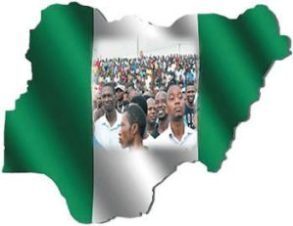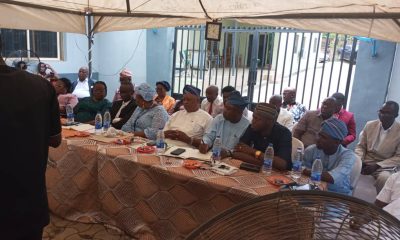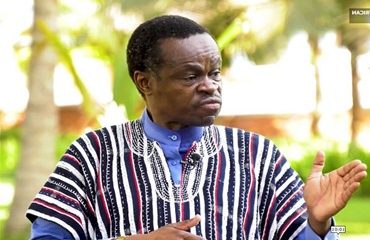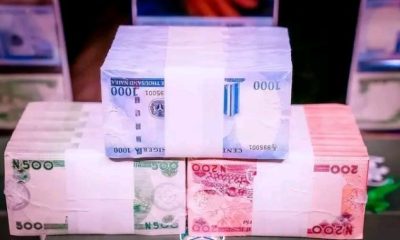Opinion
ThursdayRapAround: Dissecting Nigeria’s 62nd Independence Anniversary

In a matter of hours, Nigeria, a nation with the world’s largest convergence of black race will clock 62-year-old.
This being the day the country gained independence from the erstwhile colonial leader, the Great Britain, after a long-drawn self-determination battles with the colonialists.
Recalled that in 1953, late Chief Anthony Enahoro initiated the self-government motion in the Western House of Assembly, which eventually led to Nigeria’s Independence on 1st October 1960.
By implication, Independence is intended to herald a sense of autonomy, freedom, responsibility and attain full capacity to decide on modest, workable economic, political and socio-cultural fortunes. It meant that all state architectures would be manned by Nigerians and that the economy would be invigorated so that an egalitarian and prosperous society would be created – all for common good.
The biggest posers on the lips of everyone, however, are whether the country has attained the set target or not.
Nigeria, particularly when compared with her peers at independence, appeared to have nose-dived and headed for the dungeon. This is true when certain critical indices are examined in terms of economic, human capital development and real infrastructural dynamics.
The year 1960, for instance, was unprecedented in the history of Africa, and the world at large. It was the year that witnessed the independence of about 17 African countries from their European colonial masters.
Starting from Cameroon (January 1), Senegal (April 4), Somalia (July 1), Cote d’Ivoire (August 7), Nigeria on October 1, and to other freed countries, 1960 was truly the freedom year for Africa.
Unfortunately, 62 years down the line, all of the 17 countries that gained independence, especially Nigeria, have nothing to show for their hard-earned freedom, autonomy. Despite the freedom, Nigeria’s poverty gap according to reports is getting wider every year, while her folks in Asia are fast closing theirs.
The case of Nigeria is pathetic, considering the trillions of dollars earned from the exploitation of the huge resources across her landscape, particularly crude oil, which do not reflect in the country’s current state of development.
It’s been said that despite Nigeria’s seeming improving record of growth, there has been limited evidence of poverty reduction or improved equity in the country’s highly skewed economy.
Nigeria cannot even affirm her claim as the giant of Africa among other countries that gained independence in 1960 because they are entangled with similar challenges and underdevelopment.
The reported claim of Nigeria being the largest economy in Africa was more of potent fabrication; since infrastructural development, standard of living and life expectancy are far better in some of the African countries that share Independence year with Nigeria.
For instance, Cyprus gained independence from the United Kingdom in August 1960; Kuwait, from the United Kingdom in February, 1961; Singapore in August 1965, and Malaysia, earlier in August 1957 – these countries, which are relatively peers of Nigeria, are doing far better than the supposed African giant today.
Of course, Singapore stands out with its highly developed market economy and world class infrastructural development. It is one of the four Asian Tigers; and is said to have surpassed its peers in terms of GDP per capita in recent times.
As for Nigeria, a lot of people believe that the country is the easiest in the world to manage and lead, but that it lacks good leadership to harmonize government and private sector efforts to achieve the desired development.
In as much as six decades in the life of a nation is regarded as the foundation stage, and as such, cannot be compared with that of individuals, the stream of foundation laid in the first 10 decades of a nation can determine how solid the socio-political and economy add up in future.
With democracy in place, the nation’s developmental trajectory is supposed to be on upward swing. Rather than creating the enabling environment for development, things have turned upside down with the highest levels of insecurity caused partly by the hegemonic ambition certain characters – people whose ultimate agenda is to make the country ungovernable.
These characters alongside other non-state actors are allegedly being sponsored to continue to derail the growth of the country. As we speak, no where is safe in the country, not even the seat of power.
There is gross insecurity in the land; kidnapping, terrorism, banditry, ritual killings are now the order of the day; ethno-religious strife; the economy is in total shamble; inflation at an alarming rate; people’s purchasing power at the very lowest ebb; dwindling revenue; true governance non-existent; the political space has been fully corrupted and dollarized; in fact, the list is endless.
With all these boldly written at every facet of our national life, what will the government be celebrating? Certainly, it would be the usual jamboree – a pack of haphazard activities to paint a beautiful scenario in the mind of the people. But deep down, they know there’s nothing to celebrate.
-

 News4 days ago
News4 days agoOsun RAAMP Opens Bid For Road Constructions Statewide
-

 News2 days ago
News2 days agoFamily Of Gruesomely Murdered Pastor Cries For Justice
-

 News3 days ago
News3 days agoCapacity Building: OHIS Organizes Retreat For New Board Members
-

 News21 hours ago
News21 hours agoJust In: Nigerian Governor Dethrones 15 Traditional Rulers, Reinstates 7














